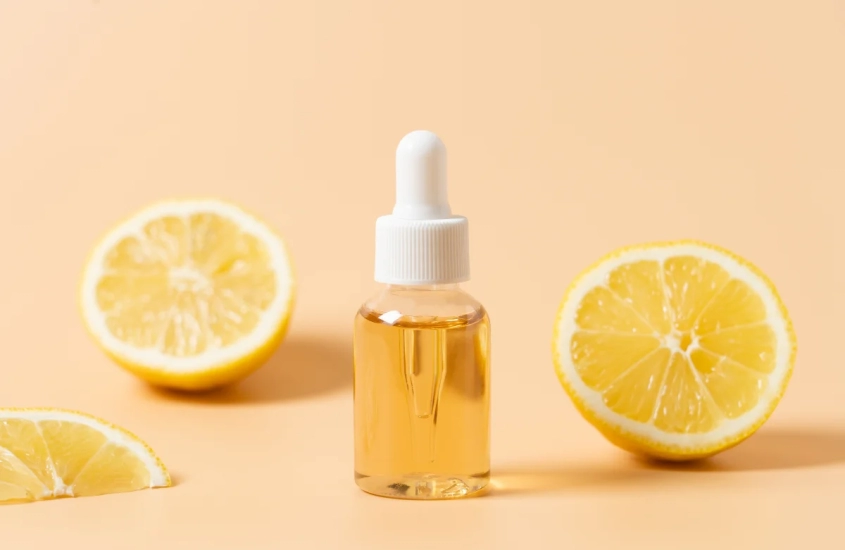Retinol and Vitamin C Moisturiser: The Skincare Duo Nobody Told You About
You’ve heard of retinol. You’ve heard of Vitamin C. Put them together and what do you have? The tag-team you didn’t know your skincare routine was missing!
One fights the signs of aging, the other defends against environmental nasties. Together, they’re a powerhouse for healthier, brighter skin.
It’s natural to have questions about mixing these two high-performing ingredients. We’ve got the answers!
Can You Use Vitamin C and Retinol Together?
Vitamin C and retinol are both powerful active ingredients, meaning they directly affect the skin at a cellular level to bring about visible, positive changes.
For this reason, you might wonder, “Is it safe to mix Vitamin C and retinol in the same routine?”
The answer is: Yes, you can use Vitamin C and retinol in the same routine, but dermatologists recommend not applying them at the same time.
Vitamin C works best in the morning to protect skin from free radicals (unstable molecules from UV and pollution that break down collagen and speed up aging). Retinol is best used at night to repair and renew.
Spacing them out like this lets you enjoy the benefits of both without overwhelming your skin or increasing the risk of irritation.
What Are the Benefits of Combining Vitamin C and Retinol?
- Brighter Skin Tone: Vitamin C helps even out dullness and add radiance, while retinol boosts skin cell turnover for a fresher look.
- Reduced Dark Spots and Hyperpigmentation: Vitamin C interferes with excess melanin production, while retinol fades existing discolouration over time.
- Improved Appearance of Dark Circles: Vitamin C strengthens under-eye skin and reduces pigment-related shadows, while retinol smooths fine lines that make circles more visible.
- Fewer Visible Signs of Aging: Vitamin C stimulates collagen, helping firm skin, while retinol reduces fine lines, wrinkles, and rough texture for a more youthful-looking complexion.
- More Even Skin Texture: Vitamin C supports healing and protection against environmental damage, while retinol refines pores and smooths rough patches.
What’s the Best Way To Layer Vitamin C and Retinol?
Follow this balanced skincare routine:
Morning (Vitamin C Focused)
- Cleanse: Gently lather Derma E Vitamin C Cleanser: Daily Brightening over your face and neck, then rinse thoroughly with water to remove dirt, oil, and impurities.
- Treat: Apply 1 or 2 pumps of Derma E Vitamin C Serum over your face and neck to brighten your skin and protect it against free radical damage.
- Target: Swipe a small amount of Derma E Vitamin C Eye Cream: No Dark Circles around your eye area to reduce shadows and smooth your under-eye area.
- Moisturise: Lock in hydration by massaging in a layer of Derma E Vitamin C Moisturiser for Renewing.
- Protect: Finish with a broad-spectrum sunscreen (SPF 30+). Sun damage is the leading cause of premature aging.
Evening (Retinol Focused)
- Cleanse: Use Derma E Vitamin C Face Wash/Cleanser again to remove sunscreen, makeup, and daily buildup.
- Treat: Massage 3–4 drops of Derma E Anti-Wrinkle Retinol Concentrated Serum into your skin to resurface and renew it overnight.
- Moisturise: Apply Derma E Vitamin C Intense Night Cream, featuring hyaluronic acid, which delivers intense moisture and infuses your skin with long-lasting hydration.
Weekly (Optional but Recommended!)
- Exfoliate: Apply a thin layer of Derma E Vitamin C Peel: Radiance Citrus Facial to your face, neck, and the upper part of your chest once a week (never with retinol) after cleansing. Avoid your eye area and broken or irritated skin. The peel will gently exfoliate and boost skin radiance. Leave it on for 3–5 minutes, then rinse with cool water. Follow with your favourite Vitamin C lotion for face.
- Refresh: Place Derma E Vitamin C Bright Eyes Hydro Gel Patches under your eyes for 10–15 minutes whenever this area feels tired and in need of a refresh.
- Glow: Apply 2–3 drops of Derma E Vitamin C Oil for face after using serum or moisturiser to lock in hydration and a healthy glow.
Spotlight on Vitamin C Moisturiser: Its Essential Place in Your Skincare Routine
A Vitamin C moisturiser takes moisturising to the next level, delivering hydration while brightening the skin, fading dark spots, and protecting against damage from pollution and UV exposure. It also adds the antioxidant benefits of Vitamin C for a more radiant, even-toned complexion.
Vitamin C moisturiser can be suitable for all skin types, but the formula matters. Creamy, richer Vitamin C moisturisers are best for dry or mature skin, while lightweight gels or oil-free options work better for oily and combination skin. Sensitive skin types may need a gentler form of Vitamin C, like magnesium ascorbyl phosphate, to avoid irritation.
Derma E Makes Using Retinol and Vitamin C Together Easy
At Derma E, our skincare products are clinically proven and dermatologist-recommended, so you can trust they’ll deliver real results without compromising your skin’s health.
Browse the Derma E Vitamin C range today, including our famous Vitamin C moisturiser, and check out our retinol serums and creams to take advantage of this dynamic skincare duo.
If you have any questions about Derma E products, our Frequently Asked Questions page is a great place to start. If you can’t find the answers to your questions there, get in touch by filling out this form. Our skincare experts are ready to help!
FAQ
Do Dermatologists Recommend Using Retinol and Vitamin C Together?
Dermatologists often recommend using retinol and Vitamin C together, but at different times of the day: Vitamin C in the morning for antioxidant protection and retinol at night to support skin renewal.
Should You Use Vitamin C Before or After Retinol?
Use Vitamin C in the morning, as it protects against damage from UV and pollution during the day. Retinol works best at night when skin is in repair mode and isn’t exposed to sunlight, which can make retinol less effective and more irritating.
Is It OK To Use Retinol and Vitamin C on Sensitive Skin?
Both can irritate sensitive skin, so dermatologists recommend doing a patch test first and then using Vitamin C in the morning and retinol at night.




